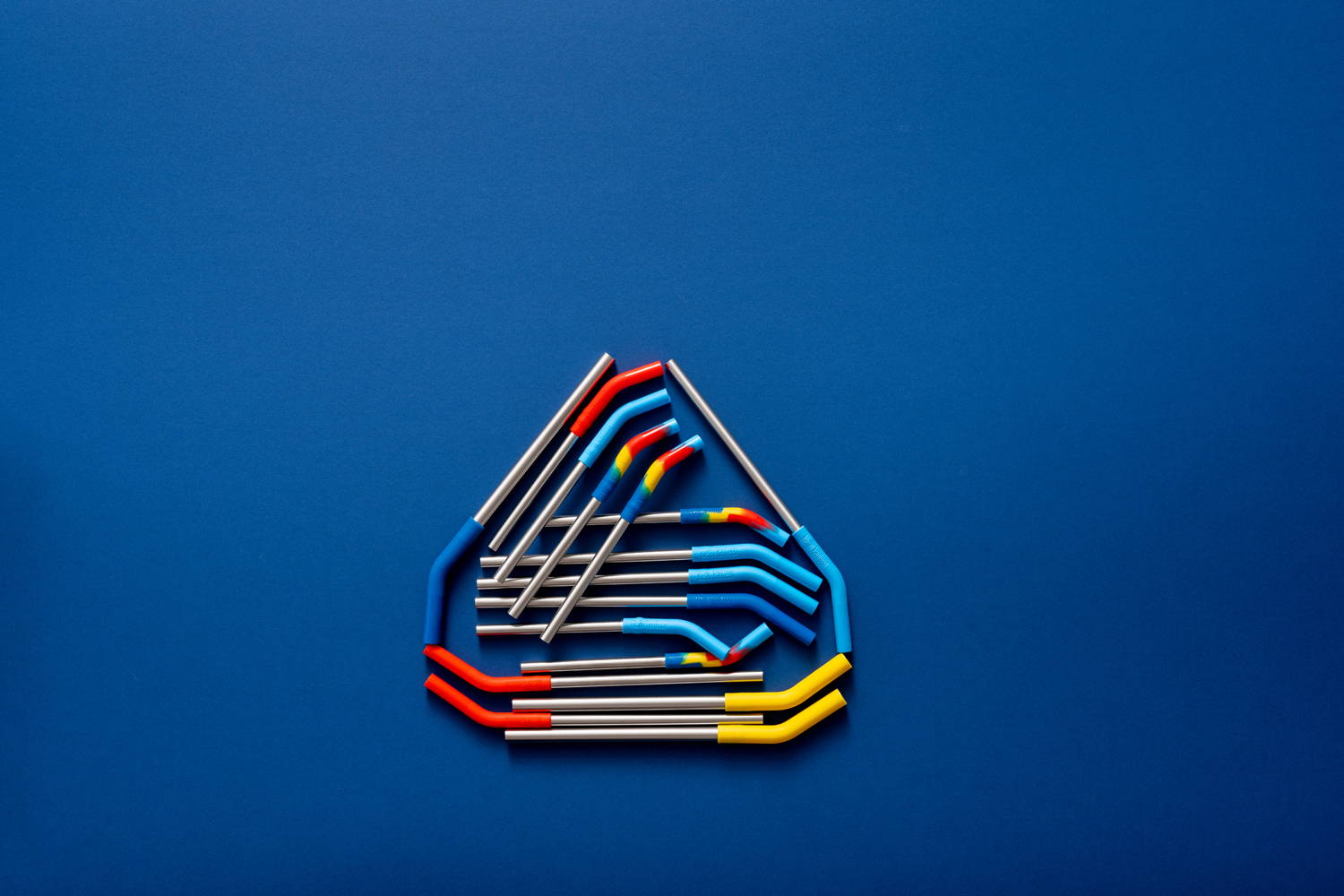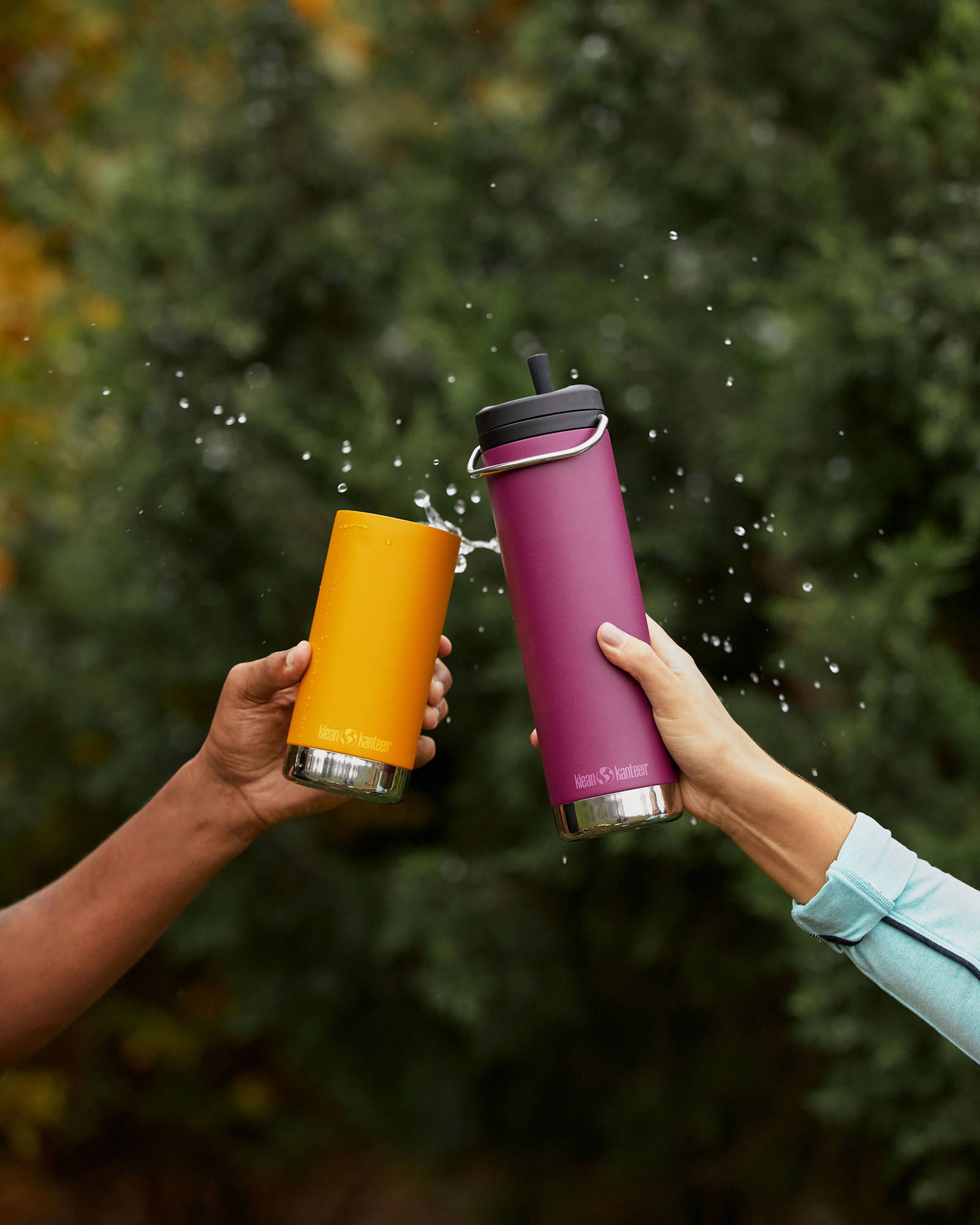You probably already know that we are a Certified B Corporation, certified Climate Neutral, and a member of 1% For the Planet. But one of the strongest commitments we’ve made to the environment is our dedication to using certified 90-percent post-consumer recycled stainless steel in our water bottles, food canisters, straws, and other products.
Simply put: Steel production is traditionally an energy-intensive process that emits a lot of carbon dioxide. We know it is part of our responsibility to acknowledge and seek out alternative means of production that are the least harmful to the environment. Steel is made by the processing of iron ore, the mining of which consumes huge amounts of energy and produces large amounts of gas emissions and water pollution.
That’s the bad news. The good news–and the reason we are making the change to certified 90-percent post-consumer recycled steel–is that the recycling process of steel is much less harmful to the environment. In theory, every piece of steel in existence can last forever, repurposed as steel in some form or another, in perpetuity. Steel products can always be converted into other steel products, with relatively minimal need for new iron ore mining or new steel production.
Our role in the Zero Waste movement is to not just “greenwash” and do marketing that sounds environmentally friendly—we are living it by committing to using recycled steel that can be reused in perpetuity. Purchases of these types of products will promote a reduction of greenhouse gas emissions, cleaner soil and water, less perfectly good steel sitting wasted in landfills, and more eco-conscious jobs.




